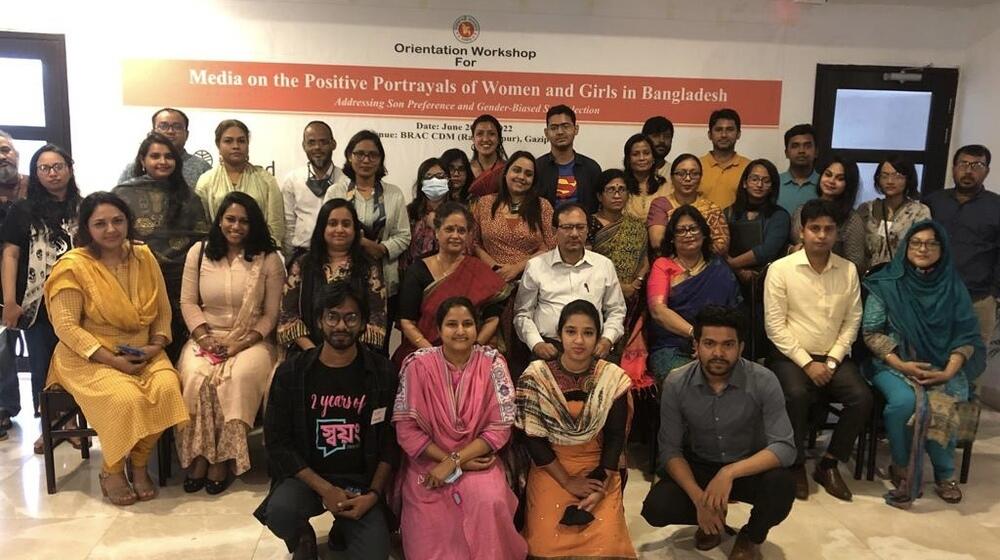Gazipur, Bangladesh, June 21, 2022 – On 20-21 June 2022, UNFPA and Concerned Women For Family Development (CWFD) jointly hosted an orientation workshop on positive media portrayals of women and girls for media professionals in Bangladesh.
The training was held under the Global Programme Addressing Gender-biased Sex Selection and Related Harmful Practices in Asia and the Pacific Region, funded by Norwegian Agency for Development Cooperation (NORAD).
Although gender-biased sex selection has not been proven to be prevalent in Bangladesh yet, the three preconditions for it to occur – low fertility rates, son preference and availability of sex selection technology – all exist in the country.
Experts have stated that unless widespread son preference and undervaluing of women and girls it causes is addressed, gender-biased sex selection could quickly become a major issue in Bangladesh in the near future. As the experience of some countries in the region shows, this could have devastating implications for Bangladesh’s social and demographic dynamics.
As the media plays an enormous role in shaping how society sees women and girls, the workshop aimed to ensure that media outlets in Bangladesh do not contribute to spreading or replicating ideas that devalue or undermine women and girls in their content.
More than 25 media professionals from different newspapers, television channels, radio stations, news agencies, online portals, advertising agencies and youth organizations took part in the workshop.
During the lively discussions, the participants reflected on common negative portrayals of women and girls in local media and committed themselves to challenging these harmful narratives in their own reporting in the future.
The Director General of the Mass Communication Department of the Government of Bangladesh, Md. Zashim Uddin, also attended the closing session of the workshop.
In his remarks, Mr. Uddin praised local media outlets for their contributions to improved gender equality in Bangladesh: “Much of the credit behind the significant advancement of gender equality and women’s empowerment in Bangladesh goes to the thriving media in Bangladesh. We will accelerate our communication efforts and adopt innovative approaches to address the issues of son preference and undervaluing of women and girls.”


